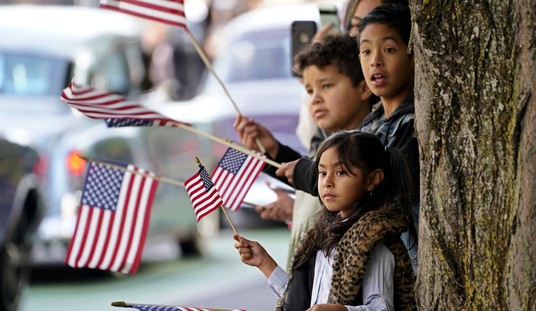PEN America, a group dedicated to promoting the freedom of written expression, has issued a new report on free speech on campus. The report offers a kind of survey of recent literature on the topic, with PEN positioning itself as a moderator between those who advocate for free speech and student activists demanding trigger warnings, safe spaces, etc. From the report:
PEN America undertook an investigation into the apparent chasm that has opened up between student activists and free speech advocates. We broach this issue out of a sense of related concerns that are deeply embedded in our mission: that these controversies are giving students a false sense that the speech of some takes priority over that of others; that ideas of freedom of speech and freedom of association are becoming dangerously dissociated, when in fact they depend heavily on each other; that the liberal values of free speech, non-discrimination, and inclusion are being needlessly and unhelpfully pitted against one another; and that a rising generation may be turning against free speech because some of its more forceful advocates have been cast as indifferent to other social justice struggles. Before these developments deepen and harden, PEN America hopes to open up a wider, more searching dialogue that can help all sides to these debates better identify common ground and better build on their shared appreciation of the university as an essential foundation for building a stronger and more open American society.
Given its stated intent to open up a “searching dialogue,” it’s probably not surprising that the report concludes there is no crisis on campus. Nevertheless, PEN does engage in some efforts aimed at correcting what it sees as problems with student activists’ language and behavior. For instance, this attempt to point out that “microaggressions” probably creates more problems than it solves:
“Aggression” implies intentionally hostile, even violent action. But while some microaggressions do evince hostility or ignorance, others plainly do not. Many of the slights labeled as microaggressions aren’t intentionally hostile; indeed, they are often hard to correct because they are the products of unfamiliarity or ignorance of another person’s culture, background, or experience. Universities do not help when they compile long lists of alleged microaggressions that students and faculty should uniformly avoid. Some of these lists have included statements such as “America is the land of opportunity” and the use of “you guys” to address a mixed-gender group. But however they are perceived, such phrases are typically not uttered with aggressive intent. Calling attention to microaggressions may make individual speakers more aware of the impact of their words, but to imply that these words were deliberately hostile may elicit a defensive reaction and undermine mutual understanding.
That’s a fairly long-winded way of saying “microagressions” is a misleading term that assumes bad intent where none is intended. There’s also a criticism of “safe spaces”:
…outside the realm of small, self-selected groups united by shared views, it is neither possible nor desirable to offer protection from all ideas and speech that may cause a measure of damage. Insisting that the campus be kept safe from all these forms of harm would create a hermetically sealed intellectual environment where inhabitants could traffic only in pre-approved ideas…
Safe spaces on campus should be entered into voluntarily by students wishing to associate with a certain group, not created or imposed to exclude unwelcome views. In general, safe spaces should be places to visit and spend time socializing, recharging, venting, enjoying solidarity, and making joint plans rather than places to dwell day in and day out to the exclusion of different views and experiences.
There’s also a strong statement against disinviting controversial campus speakers, especially under the threat of violence from protesters:
Except in the most extreme cases, concerns over threats of violence or the potential outbreak of violence should not be grounds for canceling a controversial or event. To do so gives those willing to resort to violence effective veto power over what the rest of the campus is entitled to see and hear…
The “assassin’s veto”—the ability of those willing to resort to violence to determine what speech can be heard—is anathema to free speech. It cedes control to the most extreme and lawless elements. It is the responsibility of the university administration and, where necessary, local law enforcement to ensure the safety of the speaker, the audience, and protesters.
So there are a lot of individuals statements in this report that stand up squarely for free speech on campus. And yet…there’s also an attempt to suggest, maybe, some of these things are generational and therefore negotiable:
Some entreaties for or against the use of particular language (even if the terms sound neologistic, overly politically correct, or otherwise distasteful to some ears) should be recognized as adaptations to students whose ethnic and racial backgrounds, upbringing, and priorities may bear scant resemblance to the populations that dominated the university campus during the second half of the 20th century. While liberal values and principles remain fundamental, the implications of these precepts necessarily evolve from generation to generation, reflecting social changes and new norms. No cohort has the power to freeze the interpretation of values such as liberalism, academic freedom, or even free expression, and new ways of thinking deserve to be understood and considered, rather than dismissed.
That’s one line from a long summary of PEN’s view of the campus speech debate but I found it worrisome. As the report describes elsewhere, many of these campus activists already seem intent on blurring lines between actual violence and feelings of harm caused by speech that activists don’t like. Parts of the report do a good job rejecting those attempts to “evolve” our understanding of free expression, so why leave the door open like this? PEN seems to be trying a bit too hard to be generous to some very illiberal notions being advanced by campus activists.
Case in point, Storm Ervin, one of the founders of Concerned Students 1950 told the NY Times:
“Free speech is the reason we were allowed to protest,” she said in an interview.
But Ms. Ervin, like many fellow students, does not see untrammeled free expression as always the paramount value, or one that is easily reconciled with equality and inclusion.
“I understand what is meant by ‘the campus as a whole is better conceived as a safe place,’” she said in a subsequent email, citing a passage in the report. “But I think we, the author and I, can agree that that campus is not a psychological safe space for all, and part of the reason is that of free speech.”
A “psychological safe space” is not what college is supposed to be about.








Join the conversation as a VIP Member